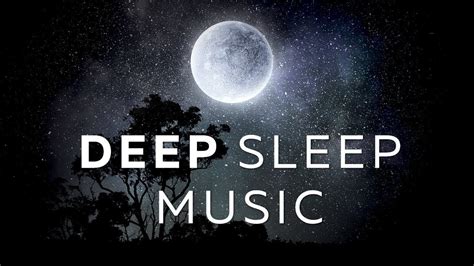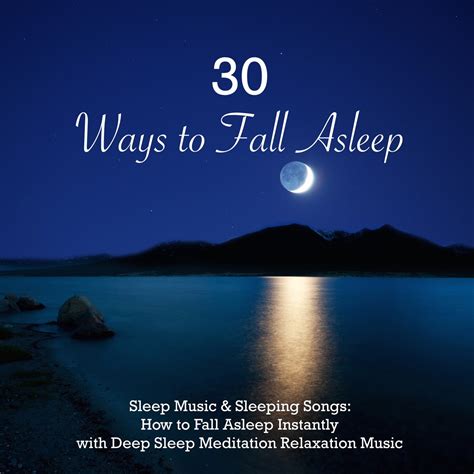Intro
Improve sleep quality with soothing sleep music. Discover 5 sleep music tips, including calming melodies, nature sounds, and white noise, to enhance relaxation and deep sleep, promoting better rest and overall well-being.
Sleep is a vital aspect of our daily lives, and getting quality sleep is essential for both physical and mental health. However, many of us struggle with falling asleep or staying asleep throughout the night. One effective way to improve sleep quality is by listening to sleep music. Sleep music is specifically designed to help individuals relax, unwind, and prepare their minds and bodies for a restful night's sleep. In this article, we will explore the importance of sleep music and provide tips on how to use it effectively.
Sleep music has been shown to have a positive impact on sleep quality, reducing stress and anxiety, and promoting relaxation. It can help individuals fall asleep faster, sleep more soundly, and wake up feeling refreshed and rejuvenated. With the numerous benefits of sleep music, it's no wonder that more and more people are turning to it as a natural sleep aid. Whether you're struggling with insomnia, sleep disorders, or simply looking to improve your overall sleep quality, sleep music can be a valuable tool in your quest for better sleep.
The concept of sleep music is not new, and it has been used for centuries in various forms and cultures. From calming nature sounds to soothing instrumental melodies, sleep music has evolved to cater to different tastes and preferences. With the advancement of technology, sleep music is now more accessible than ever, with numerous apps, websites, and streaming services offering a wide range of sleep music options. Whether you prefer classical music, ambient sounds, or guided meditation, there's a sleep music solution out there to suit your needs.
Sleep Music Benefits

Types of Sleep Music
There are various types of sleep music available, catering to different tastes and preferences. Some popular types of sleep music include: * Classical music: Composers like Mozart, Beethoven, and Chopin are popular choices for sleep music. * Ambient sounds: Nature sounds, white noise, and other ambient sounds can create a calming atmosphere for sleep. * Instrumental music: Piano, guitar, and other instrumental music can be soothing and relaxing. * Guided meditation: Guided meditation music can help individuals relax, focus, and prepare for sleep.Creating a Sleep Music Playlist

Sleep Music Apps and Websites
There are numerous sleep music apps and websites available, offering a wide range of sleep music options. Some popular sleep music apps and websites include: * Calm: A meditation and sleep app that offers guided meditation, sleep stories, and relaxing music. * Sleep Cycle: An app that tracks sleep patterns and offers personalized sleep music recommendations. * Noisli: A website that generates background noise to help individuals sleep, focus, or relax. * Spotify: A music streaming service that offers a wide range of sleep music playlists and radio stations.Using Sleep Music Effectively

Sleep Music for Specific Sleep Issues
Sleep music can be tailored to address specific sleep issues, such as insomnia, sleep disorders, or restlessness. For example: * Insomnia: Listen to calming music with a slow tempo and gentle rhythm to help you fall asleep. * Sleep disorders: Use sleep music with a consistent beat and rhythm to help regulate your sleep patterns. * Restlessness: Listen to soothing music with nature sounds or ambient noises to help you relax and unwind.Combining Sleep Music with Other Sleep Aids

Sleep Music and Mindfulness
Sleep music can be used in conjunction with mindfulness practices to enhance relaxation and improve sleep quality. Mindfulness practices, such as deep breathing, progressive muscle relaxation, and body scan meditation, can help individuals relax, focus, and prepare for sleep. By combining sleep music with mindfulness practices, individuals can create a powerful sleep routine that promotes relaxation, reduces stress, and improves sleep quality.Sleep Music and Technology

Sleep Music and Brainwave Entrainment
Sleep music can be used to influence brainwave activity, promoting relaxation, reducing stress, and improving sleep quality. Brainwave entrainment involves listening to music or sounds that stimulate specific brainwave frequencies, such as alpha, beta, or theta waves. By listening to sleep music with brainwave entrainment, individuals can calm their minds, slow down their heart rates, and prepare their bodies for a restful night's sleep.Sleep Music Tips and Tricks

Sleep Music for Children
Sleep music can be beneficial for children, helping them relax, unwind, and prepare for sleep. Some popular sleep music options for children include: * Lullabies: Traditional lullabies or modern versions can help children relax and fall asleep. * Children's music: Music specifically designed for children, such as nursery rhymes or kid-friendly songs, can help them wind down and prepare for sleep. * Nature sounds: Nature sounds, such as rain or ocean waves, can create a calming atmosphere for children to sleep.Sleep Music and Pregnancy

Sleep Music and Menopause
Sleep music can be beneficial for menopausal women, helping them relax, reduce stress, and improve sleep quality. Some popular sleep music options for menopausal women include: * Calming music: Music with a slow tempo and gentle rhythm can help menopausal women relax and unwind. * Nature sounds: Nature sounds, such as rain or ocean waves, can create a calming atmosphere for menopausal women to sleep. * Guided meditation: Guided meditation music can help menopausal women relax, focus, and prepare for sleep.What is sleep music?
+Sleep music is music specifically designed to help individuals relax, unwind, and prepare for sleep.
How does sleep music work?
+Sleep music works by calming the mind, slowing down the heart rate, and preparing the body for a restful night's sleep.
What types of sleep music are available?
+There are various types of sleep music available, including classical music, ambient sounds, instrumental music, and guided meditation.
Can sleep music help with insomnia?
+Yes, sleep music can help with insomnia by promoting relaxation, reducing stress, and improving sleep quality.
How can I create a sleep music playlist?
+You can create a sleep music playlist by choosing calming music, considering tempo and rhythm, experimenting with different genres, and keeping it consistent.
In conclusion, sleep music is a powerful tool that can help individuals relax, unwind, and prepare for a restful night's sleep. By understanding the benefits of sleep music, creating a sleep music playlist, and using sleep music effectively, individuals can improve their sleep quality, reduce stress, and enhance their overall well-being. Whether you're struggling with insomnia, sleep disorders, or simply looking to improve your sleep, sleep music can be a valuable addition to your sleep routine. So why not give it a try? Experiment with different types of sleep music, find what works best for you, and start sleeping better tonight. Share your favorite sleep music tips and tricks in the comments below, and don't forget to share this article with friends and family who may benefit from the power of sleep music.
